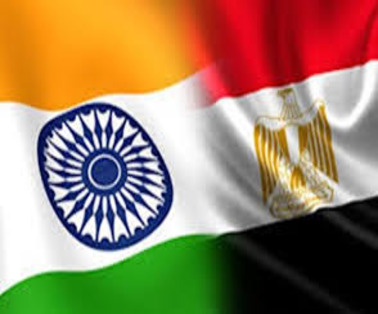The Uttar Pradesh Special Task Force has recently encountered two persons who were wanted in connection with a murder case. The Supreme Court (SC) has said that in recent years, there have been several cases of encounters and extra-judicial killings in India, which have raised concerns about the misuse of power by the police
What Are Extra Judicial Killings?
- Extra-judicial killings, popularly known as ‘encounters’ are those when the accused person is killed or executed illegally by the police officials before the judgement of the trial arrives.
- It can be said that the accused person in such cases is not even given a right to prove himself/ herself innocent before the court of law, which is illegal, as it violates basic human rights.
- The physical torture, sexual harassment, or mental torture of the accused by the police while the person is in custody also comes under the ambit of extra-judicial killings
Extra Judicial Killings: Trends in India
- India has registered 813 cases of encounter killings in the last six years, from 2016-’17 to 2021-’22.
- While there was a significant drop in these cases during the peak of the Covid-19 pandemic – from 112 in 2019-’20 to 82 in 2020-’21 – there was a 69.5% spike the next year with 139 cases.
- In the six years since April 2016, Chhattisgarh recorded the most extrajudicial killing cases at 259, followed by Uttar Pradesh at 110 and Assam with 79.
- Uttar Pradesh has seen more than a two-fold increase in extrajudicial killings in the last six years.
- The Uttar Pradesh Police, in their unofficial mission called “Operation Langda”, shot and injured more than 3,300 criminals in 8,472 encounters, leaving them with bullet wounds in legs
- In 2021-’22, Jammu and Kashmir with 38 has reported the most extrajudicial killing cases in India
Constitutional Provisions and Extra Judicial Killings
- The Constitution of India intended for India to be a country governed by the rule of law.
- As per the rule of law, the Constitution is the supreme power in the land and the legislative and the executive derive their authority from the constitution.
- There is a procedure prescribed by the law for criminal investigation which is embedded in the Constitution under Article 21 as the Right to Life and Personal Liberty. It is fundamental, non-derogable and is available to every person. Even the State cannot violate that right.
- Hence, it is the responsibility of the police to follow the Constitutional principles and uphold the Right to Life of every individual whether an innocent one or a criminal.
Police Rights and Encounter Deaths
- The police force has the right to injure or kill the criminal, for the sole and only purpose of self-defense or where it is imminently necessary for the maintenance of peace and order.
- Under Section-96 of the Indian Penal Code (IPC), every human being has the right to private defense which is a natural and an inherent right.
- Section-46 of the Criminal Procedure Code (CrPC) authorises the police to use force, extending up to the cause of death, as may be necessary to arrest the person accused of an offence punishable with death or imprisonment for life.
NHRC Guidelines on Extra Judicial Killings
- In 1997, the NHRC provided guidelines for police to register information about encounter deaths, allow independent investigation by the State CID (Central Investigation Department), and grant compensation to the deceased’s dependents in case of police officers being convicted.
- In 2010, these guidelines were amended to include registering an FIR, conducting a magisterial inquiry, and reporting all death cases to the NHRC within 48 hours by the Senior Superintendent of Police or Superintendent of Police. After three months, a second report must be sent with the postmortem report, inquest report, and enquiry findings.
Supreme Court’s Stance on Extra Judicial Killings
The Supreme Court framed guidelines to be followed in “encounter” cases in People’s Union for Civil Liberties v State of Maharashtra, (2014).
The 16-Point Guideline By The Supreme Court Of India
The Supreme Court bench of chief justice R.M. Lodha and Justice Rohinton F. Nariman in 2014 outlined a 16-point guideline to follow in cases of death or grievous injury in police encounters. As per the Supreme Court of India, every death at police hands must be recorded and investigated by an independent agency or a police unit not involved in the case.
The guidelines, in brief, are as follows:
- Tip-offs about criminal activities must be recorded either in writing or electronic form.
- If pursuant to a tip-off the police use firearms and these results in the death of a person, then an FIR initiating proper criminal investigation must be registered.
- The investigation into such death will be done by an independent CID team which has to fulfill eight minimum investigation requirements.
- A mandatory magisterial enquiry into all cases of encounter deaths.
- The NHRC or State commission must be immediately informed of the encounter death.
- Medical aid to injured victim/criminal and a magistrate should record his statement.
- Ensure forwarding FIR and police diary entries to court without delay.
- Expeditious and proper trial.
- Informing next of kin of the dead alleged criminal.
- Bi-annual statements of all encounter killings to be sent to the NHRC and state commissions by a set date in a set format.
- Disciplinary action against and suspension of a police officer if found guilty of wrongful encounter.
- Compensation scheme under the CrPC to be followed for awarding it to the kin of the dead victim.
- Police officers must surrender their weapons for investigation, subject to rights under Article 20 of the Constitution.
- Intimate family of the accused police officer and offer services of lawyer/counselor.
- No out of turn gallantry awards for the officers involved in encounter killings.
- The family of the victim can complain to the Sessions judge if it feels that these guidelines have not been followed. The judge will take cognizance.
Reasons for Extra Judicial Killings
- Sometimes, the public supports these extra-judicial killings because they think that the court will not provide timely justice.
- Many political leaders believe that more encounters will serve as their achievement in maintaining law and order in the state.
- The government provides various types of promotions and cash incentives to the officers who are involved in the execution of extra-judicial killings.
- The high pressure from the government instigates the police officials to treat the criminals brutally to extract information or confessions from them.
- Many police officials believe that brutal torture of criminals creates fear in potential offenders and is necessary to control crime.
To Download Monthly Current Affairs PDF Click here
Click here to get a free demo
Everything About CLAT 2026



